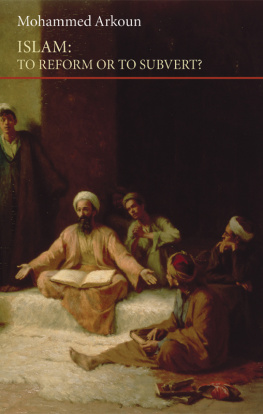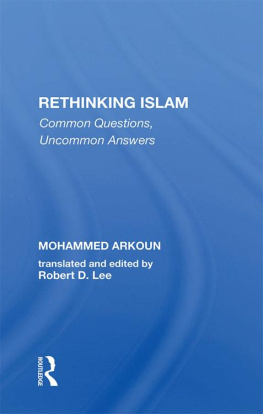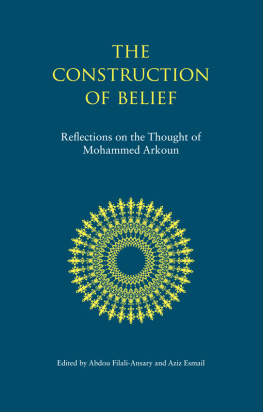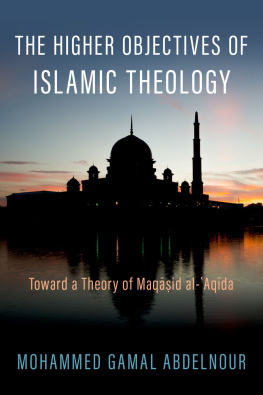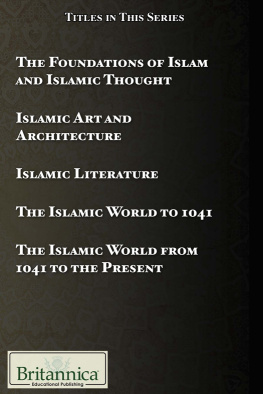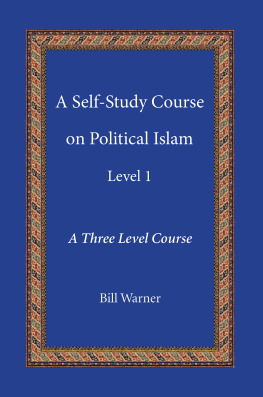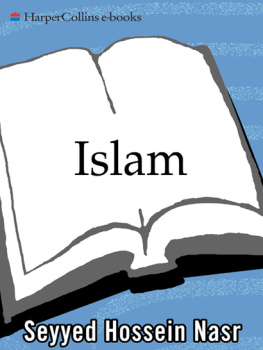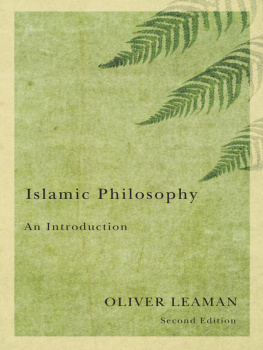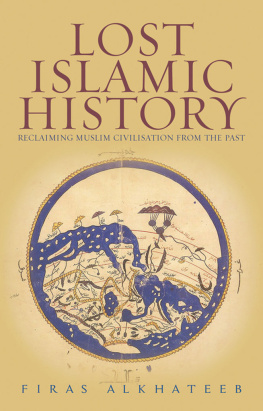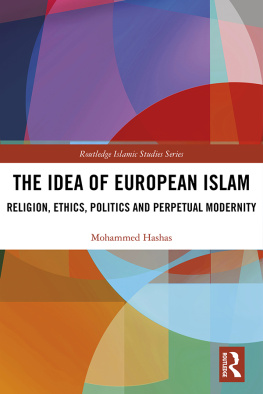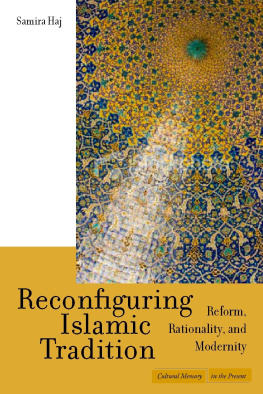Mohammed Arkoun
ISLAM:
To Reform or to Subvert?

To my wife,
who helped with the elaboration of this book
with conviction and deep affection
Contents
Preface to the Second Edition
The publication of the second edition of the present work provides me with a fitting occasion for re-stating the theoretical perspective which inspired its writing and indicating its relevance to the copious output of opinion and debate that has followed in the wake of the tragic events of 11th September, 2001.
The relevance of the books overarching theme to these events, though by no means premeditated (for the work was issued only six months after the events, and thus was written much earlier) remains, to my mind, as fresh as ever. Indeed, it seems to me that the never-ending stream of publications, whether popular or scholarly, whether written for the benefit of journalists, politicians, government officials or the public at large, or by academics or religious believers publications which seem ceaselessly to diagnose, elucidate or otherwise explain these events and the conditions that allegedly gave rise to them serve only, primarily by default, to underline the importance of the themes broached in my work. It was my intention, in writing this book, to draw attention to what remains systematically unthought, not merely out of neglect but out of the active resistance of what one might call the mytho-historical mind, such as it is, in what passes for Islamic thought. The present occasion is an opportune moment for suggesting that this mentality remains as stubbornly in place as ever. It is to be encountered, moreover, not only in Muslim conceptions of their own history and culture but, as is only too apparent in the very stream of publications just mentioned, in accounts of Islam, including those by scholars with impeccable academic credentials, published in the West.
The book by Bernard Lewis, entitled What Went Wrong?, whose phenomenal sales attest to its mass appeal, is an excellent case in point. This is not the place for a detailed critique of this work. It will suffice to point out that both its title and its contents betray the intellectual impasse born of a frame of mind intent on thinking in terms of the polarity of an imaginary Islam and its equally imaginary counterpart of the West. So long as this fictional dualism remains in place, the intellectual impasse which is thereby engendered is destined to remain irresolvable.
From my earliest to most recent publications on Islam, I have consistently sought to raise the question of the cognitive status of what Muslim theologians, exegetes, historians and jurists have long thought of as revelation, a concept which they have taken, without further question, as a given. In thus resting their elaborate formulations on a notion which itself remains immune to the operations of critical reason, Muslim authors were responsible for creating a tradition which, though rich and intricate on its own terms, depended for its very potency on a vast terrain of the unthought and the unthinkable. Contemporary Islam, heir to this tradition, further reinforced by the ideological strains resulting from their experience of modern history, resorted to the strategy of sanctifying classical, textual definitions of Islam, turning these effectively into the ultimate bedrock of legitimacy and authority for its own axioms and proclamations. It was this whole enterprise that I have consistently attempted to deconstruct, so as to push back the boundaries of what is intellectually possible to envisage in this area, and thereby to open new avenues of thought and investigation, not only for the Islamic tradition of thought, but most significantly for all other religious legacies and for the Western modern secularised Enlightenment. This means that my ambition is to embrace in the same intellectual gesture a radical critique of reason in all its productions, methodologies and epistemological postures.
The title of what I consider to be an important embodiment of my work along these lines, Towards a Critique of Islamic Reason, was self-evidently devoted to this aim. Far from suggesting that there is such a thing as a generically Islamic reason, let alone advocating its claims, the treatise was intended to show how such a mythical construct could arise, and to demonstrate the advantages of probing it by means of the critical tools of modern linguistic, anthropological and historical scholarship. It was dismaying to find, therefore, scholars such as Leonard Binder or (to a lesser degree) Robert Lee or Olivier Carrfailing to grasp the radicalism of my intent, took my work as a species of modern, reformist (islahi) Islam; whereas, in my whole approach, Islamic reform of the familiar type, represents precisely the kind of mythologising and ideologising that I am concerned to lay bare and to help overcome.
In short, my aim in this regard is to advance an epistemological critique at the level pioneered by Kant and developed further, with due additions or modifications, by a small number of authors whom I prefer to place in the category of les chercheurs-penseurs (researchers-scholars being the literal though admittedly inelegant equivalent in English). Unlike the strictly philosophical scope of Kants work, however, I take as the object of my critical endeavour the phenomenon which may be best described as historical epistemology, which happens, in part, to be that of Islam, in both its classical and contemporary manifestations.
I say, in part because the same approach is applicable, indeed cries out to be applied, to the Wests understanding of itself. This understanding is the other, if hidden, side of the Wests current discourse on Islam. It should be evident now why I find in the recent flood of publications on Islam, as mentioned above, a reminder not only of the continuing timeliness of my strictures on Islamic mytho-history, presented in this work, but of the need to expose to view what remains unthought in the Wests self-understanding. This feature would seem to have been thrown into clearer relief in the wake of recent events, for the type of publications to which I allude above, and the commonality of the discourse which underlies their superficial diversity, are symptomatic, precisely, of this very problem.
It is instructive to remark, in this regard, that the numerous commentaries we have seen on the events of 11th September, their character as the sort of human disorder which was the central subject of Greek tragedy, has been totally missed. In other words, the question before us is as to what genre of interpretation and analysis might help identify the disastrous responses to what should ideally have been recognised as the product of a collective psyche which has not yet been emancipated from a mytho-historical mode. This mentality is further encumbered by mytho-ideological procedures of thought and perception designed to exploit this way of thinking so as to produce spurious impressions of legitimacy. The period since the first appearance of this book has given me ample opportunity to observe the persistence of this mentality, and the utter failure of Western scholars and commentators to recognise its existence and its effects.
I have thereby been led to the conclusion that what requires urgently to be identified and studied are the reasons for what could be termed the sociology of success and failure in the sphere of intellectual, scientific and artistic production, in both the Western and Muslim contexts. These factors are to be observed equally in both developed and undeveloped societies, in democratic countries as well as those marked by despotic or authoritarian orders and in societies with an abundance of resources as much as those which are impoverished and deprived.
Next page
